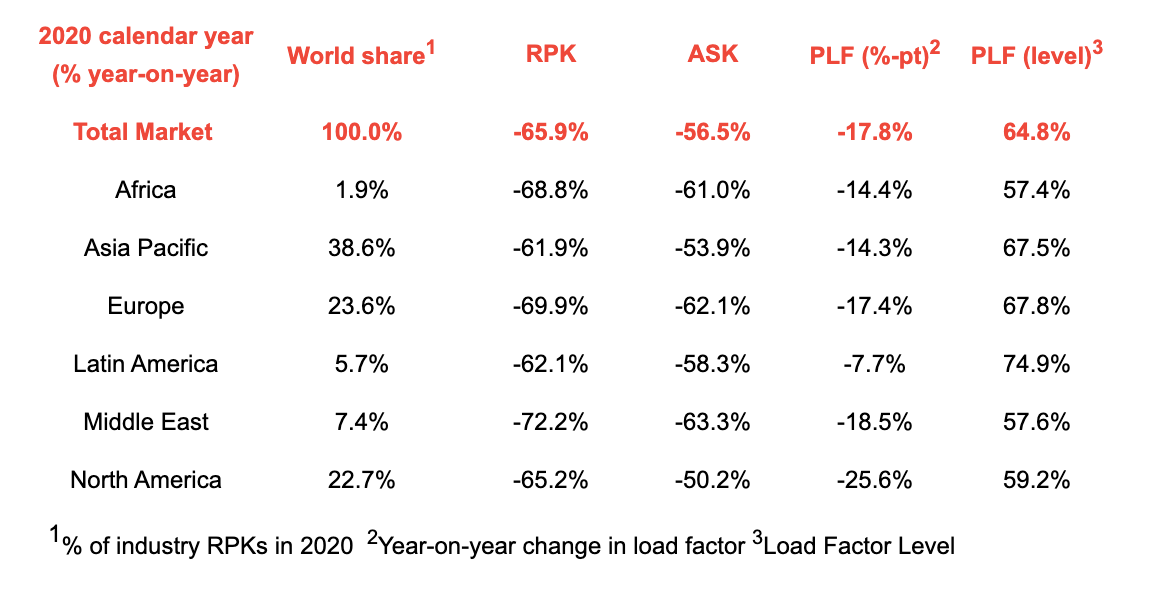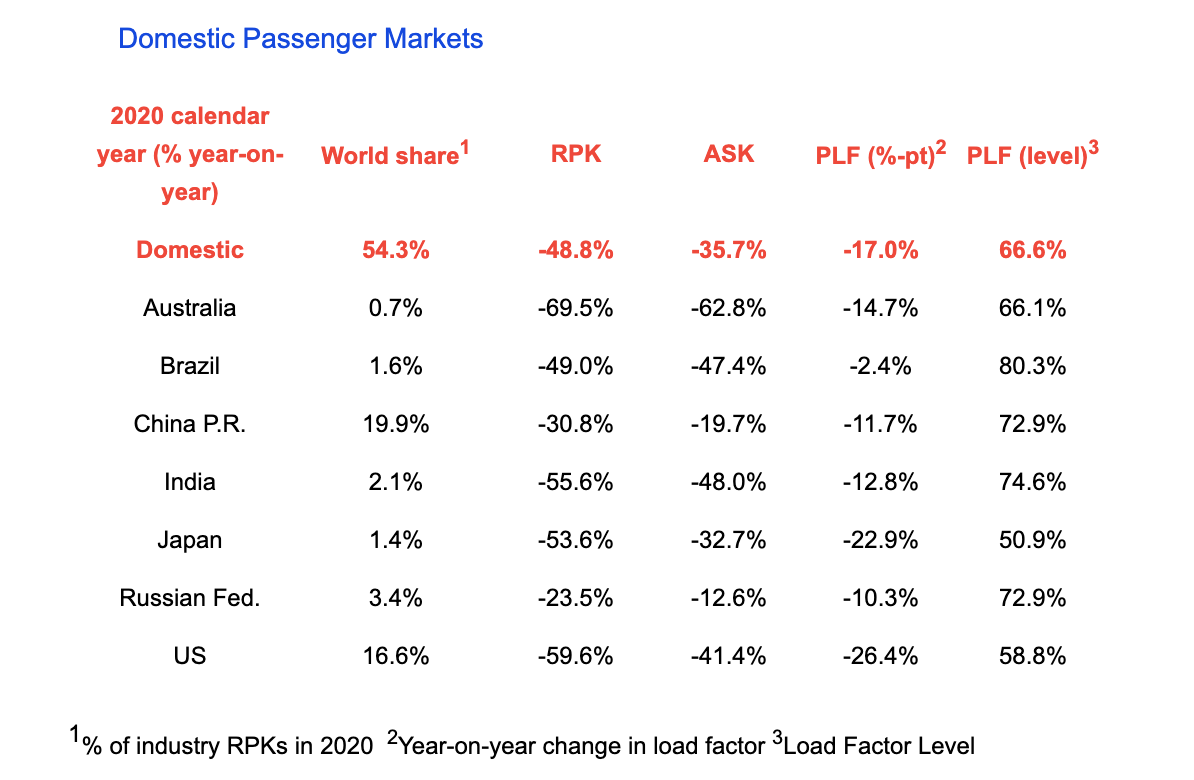2020 was worst year ever for air travel demand says IATA
The International Air Transport Association (IATA) has announced the full-year global passenger traffic results for 2020. According to IATA, demand (revenue passenger kilometers or RPKs) fell by 65.9% in 2020 compared to 2019.
In the history of air travel, demand has never declined to such a level, and forward bookings continue to fall. Bookings for future travel made in January 2021 were down 70 percent compared to January of 2020. This is adding serious pressure to airlines, which are already on life support, and adds additional uncertainty to any forecasted timeline of recovery.
In 2020 versus 2019:
International passenger flights:
• Demand dropped 75.6%
• Capacity declined 68.1%
• Load factor fell 19.2 percentage points to 62.8%
Domestic passenger flights:
• Demand was down 48.8%
• Capacity contracted by 35.7%
• Load factor dropped 17 percentage points to 66.6%.
December saw little improvement over November in 2020, with total traffic down 69.7% as opposed to the 70.4% contraction in November.
Capacity was down 56.7% and load factor fell 24.6 percentage points to 57.5%.
IATA’s forecast for 2021 remains unchanged at 50.4% improvement on 2020 demand. This would bring the industry to 50.6% of 2019 levels. However, if more severe travel restrictions are put in place because of the new COVID-19 variants, IATA says improvement could be limited to just 13% over 2020 levels, leaving the industry at 38% of 2019 levels.
“Last year was a catastrophe. There is no other way to describe it. What recovery there was over the Northern hemisphere summer season stalled in autumn and the situation turned dramatically worse over the year-end holiday season, as more severe travel restrictions were imposed in the face of new outbreaks and new strains of COVID-19,” said Alexandre de Juniac, Director General and CEO of IATA.

International Passenger Markets by airlines’ region, 2020 versus 2019:
Asia-Pacific
• Demand was down 80.3
• Capacity contracted by 74.1%
• Load factor fell 19.5 percentage points to 61.4%
Europe
• Demand declined 73.7%
• Capacity fell 66.3%
• Load factor decreased 18.8 percentage points to 66.8%
Middle East
• Demand was down 72.9%
• Capacity contracted by 63.9%
• Load factor plummeted 18.9 percentage points to 57.3%
North America
• Demand fell 75.4%
• Capacity dropped 65.5%
• Load factor sank 23.9 percentage points to 60.1%
Latin America
• Demand was declined 71.8%
• Capacity fell 67.7%
• Load factor dropped 10.4 percentage points to 72.4%, by far the highest among regions.
Africa
• Demand was down 69.8%, which was the best performance among regions
• Capacity contracted by 61.5%,
• Load factor sank 15.4 percentage points to 55.9%, the lowest among regions.

“Optimism that the arrival and initial distribution of vaccines would lead to a prompt and orderly restoration in global air travel have been dashed in the face of new outbreaks and new mutations of the disease. The world is more locked down today than at virtually any point in the past 12 months and passengers face a bewildering array of rapidly changing and globally uncoordinated travel restrictions. We urge governments to work with industry to develop the standards for vaccination, testing, and validation that will enable governments to have confidence that borders can reopen and international air travel can resume once the virus threat has been neutralized. The IATA Travel Pass will help this process, by providing passengers with an App to easily and securely manage their travel in line with any government requirements for COVID-19 testing or vaccine information. In the meantime, the airline industry will require continued financial support from governments in order to remain viable,” said de Juniac.









.jpg?&resize.width=322&resize.height=483)
